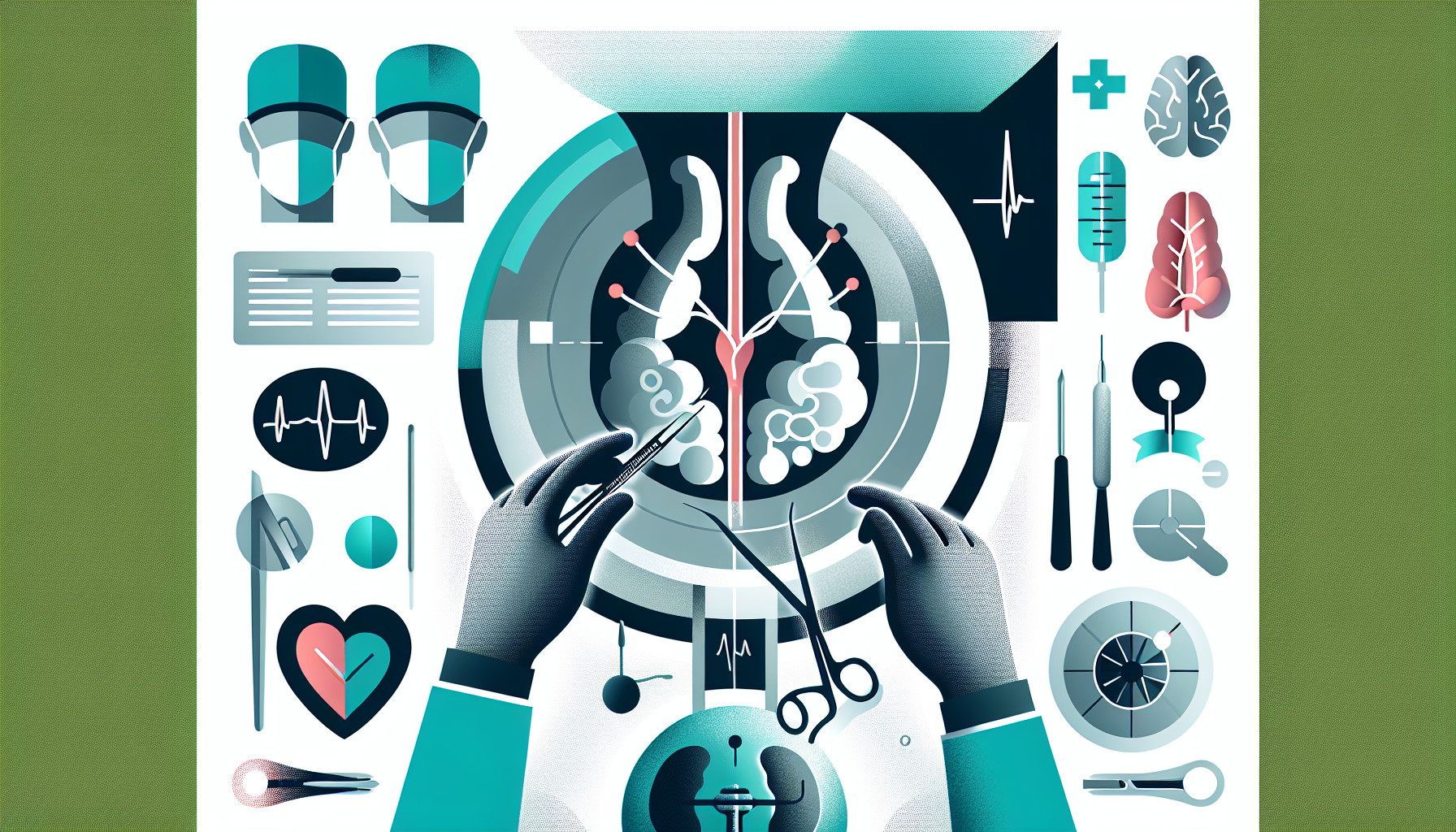Our Summary
This research paper discusses the progress made in penile implant surgery over the past 40 years, specifically focusing on how to prevent infections after the surgery, as they can lead to significant health complications. Currently, strategies for preventing infection include carefully choosing patients and conducting thorough pre-surgery evaluations, using broad-spectrum antibiotics, and altering surgical techniques to reduce skin contact and the chance of internal blood clots after surgery. These methods have been effective, but as we continue to learn more about how infections occur after penile prosthesis surgery, further efforts are needed to improve prevention strategies.
FAQs
- What progress has been made in penile implant surgery over the past 40 years?
- What strategies are currently used to prevent infections after penile implant surgery?
- How effective have the current methods of preventing infections after penile implant surgery been, and what further improvements are needed?
Doctor’s Tip
One helpful tip a doctor might tell a patient about penile implant surgery is to closely follow post-operative care instructions to reduce the risk of infection. This may include keeping the surgical site clean and dry, taking prescribed antibiotics as directed, and avoiding activities that could potentially cause trauma to the area. Additionally, patients should promptly report any signs of infection, such as redness, swelling, or discharge, to their healthcare provider for prompt treatment. By following these guidelines, patients can help ensure a successful outcome after penile implant surgery.
Suitable For
Patients who are typically recommended for penile implant surgery are those who have erectile dysfunction that does not respond to other treatments such as oral medications, injections, or vacuum devices. This includes patients with severe erectile dysfunction due to conditions such as diabetes, hypertension, cardiovascular disease, or prostate cancer. Additionally, patients who have had previous surgeries or trauma that have damaged the blood vessels or nerves in the penis may also be candidates for penile implant surgery.
It is important for patients considering penile implant surgery to undergo a thorough evaluation by a urologist to determine if they are suitable candidates for the procedure. This evaluation may include a physical examination, blood tests, imaging studies, and psychological assessments to ensure that the patient is physically and mentally prepared for the surgery and the post-operative recovery process.
Patients who have a history of recurrent infections, poor wound healing, or autoimmune disorders may not be suitable candidates for penile implant surgery, as they may be at higher risk for complications such as infections or implant failure. Additionally, patients who are unwilling or unable to follow post-operative care instructions, such as taking antibiotics as prescribed or avoiding strenuous physical activity, may also not be recommended for the surgery.
Overall, the decision to undergo penile implant surgery should be made in consultation with a urologist who can assess the patient’s individual circumstances and recommend the most appropriate treatment option for their specific needs.
Timeline
Before penile implant surgery:
- Patient consults with urologist to discuss options for treating erectile dysfunction
- Patient undergoes thorough physical examination and medical history review to determine if they are a suitable candidate for surgery
- Patient may be required to undergo additional tests, such as blood work or imaging, to assess their overall health and identify any potential risk factors
- Patient receives information on the different types of penile implants available and the potential risks and benefits of the procedure
- Patient may be advised to make lifestyle changes, such as quitting smoking or losing weight, to improve their chances of a successful surgery
After penile implant surgery:
- Patient is monitored closely in the hospital for any signs of infection or complications
- Patient may experience pain, swelling, and bruising in the surgical area, which can be managed with pain medication and ice packs
- Patient is instructed on how to care for the surgical site and prevent infection, including keeping the area clean and dry
- Patient may be advised to avoid sexual activity and strenuous exercise for a period of time to allow for proper healing
- Patient follows up with their urologist for post-operative appointments to ensure the implant is functioning properly and to address any concerns or complications that may arise
- Patient may undergo physical therapy or counseling to help adjust to the changes in their sexual function and relationships post-surgery
What to Ask Your Doctor
- What are the risks and potential complications associated with penile implant surgery?
- How long is the recovery process and what can I expect during the recovery period?
- What type of penile implant will be used and how does it work?
- How will the penile implant affect sexual function and sensation?
- What are the chances of the penile implant needing to be replaced or revised in the future?
- Are there any alternative treatments or therapies that should be considered before undergoing penile implant surgery?
- What is the success rate of penile implant surgery and what are the factors that can affect the outcome?
- What post-operative care and follow-up appointments will be necessary after the surgery?
- How can I reduce the risk of infection after penile implant surgery and what steps will be taken to prevent infection during the procedure?
- Are there any lifestyle changes or precautions that I should take after receiving a penile implant to ensure optimal results and minimize complications?
Reference
Authors: Carrasquillo RJ, Gross MS. Journal: Eur Urol Focus. 2018 Apr;4(3):317-320. doi: 10.1016/j.euf.2018.07.002. Epub 2018 Jul 13. PMID: 30017899
